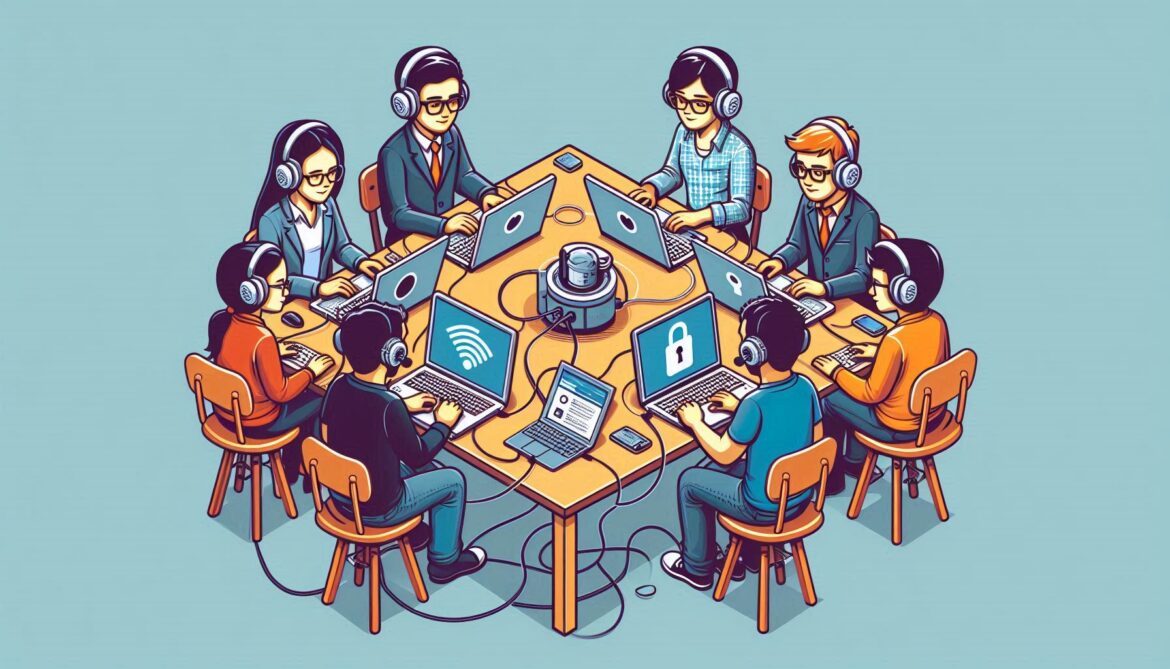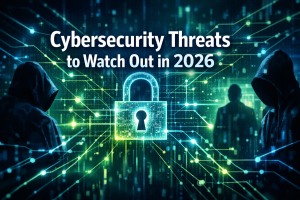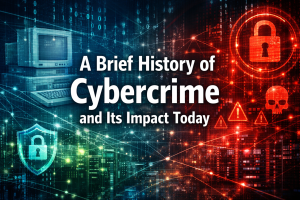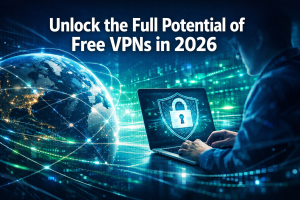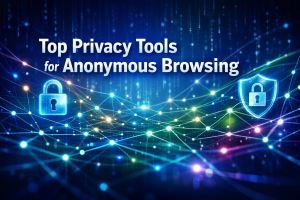Table of Contents
Where cyber threats lurk at every corner and online privacy sounds like a faraway dream, in walks the Virtual Private Network as a much-needed tool for PC users. It’s apparent this technology isn’t only for tech enthusiasts or paranoid people, with an estimate of 31% of internet users around the globe already using VPNs. Let’s talk about why you should download a VPN for PC.
Cases of Cybercrime on the Rise
The digital world is quite a dangerous place. Consider this very telling fact: hacking attacks occur once every 39 seconds. That barrage keeps pounding away, and with it, your personal data, financial information, and digital identity are put at stake every second. Traffic becomes hard to intercept with malicious entities since the VPN protects users through encryption on the internet connection.
Your Privacy in the Age of Surveillance
Privacy is now a luxury in an age when nearly everything we do online gets tracked and turned into profit. 45% of US internet users say they are more concerned about their online privacy now than in the past. VPN will help to conceal your IP address and all your Internet Communications with solid encryption that will keep your activities safe from unwanted eyeballs, whether your Internet Service Provider, government agencies, or huge corporations living off and cashing in your private data.
Geo-Restrictions and Censorship
Although designed to be a global network, the reality of geopolitics often creates artificial barriers. In this case, a VPN empowers users to bypass these restrictions and access content or services that might have been blocked in their region. This is particularly very important for people living in countries with heavy internet censorship. The highest rate of VPN usage at 61 percent is no wonder in Indonesia with its restrictive policies on the internet.
Improved Security on Public Wi-Fi
The ability of VPNs to protect user privacy while working over public Wi-Fi networks—a notoriously insecure area—has made it a favorite hunting ground for cybercriminals. In fact, 51% of people use VPNs to safeguard user privacy when connecting over public Wi-Fi. By engirding your connection with a cryptographic wrapper, a VPN ensures that sensitive data will not be compromised, even when you are working from a café or airport lounge.
Data Throttling Protection
ISPs are mainly involved in the throttling of data, which means intentionally lowering your Internet speed based on what you are doing online. With a VPN, this is hidden from your ISP, and thus there won’t be any speed change regardless of what you do online.
The Business Imperative
To businesses, VPNs are no longer an option or a nice-to-have. With many companies having already suffered from a data breach, it goes without saying that robust measures of cyber security are essential. VPNs provide a secure avenue through which remote workers can log into company networks without business-critical data being intercepted.
Cost-Effective Security
While the global VPN market is projected to be worth up to $107.6 billion by 2027, individual VPN services happen to be very cheap. Most reputable VPN providers charge a couple of dollars a month for their plans, making them a very pocket-friendly security solution for people and small businesses alike.
Final Words
Every advancement of cyber threats opens the door to innovation in VPN technology as well. The fusion of VPNs with other security technologies, such as antivirus software and firewalls, is growing in popularity these days. With the advent of Software-Defined Networking, there is going to be a dramatic change in VPN technology for increased flexibility and security.
The statistics speak for themselves: VPN usage is on the rise globally, and there’s a reason for this. By putting money into a quality VPN service for your PC, you do more than just protect your data—you take control of your online experience. A VPN, rather than being one of the nice-to-haves in 2024 and beyond, will be an essential tool in helping you navigate today’s modern internet—complex and often treacherous.
FAQ about VPNs
Q: What is a VPN? A: A VPN (Virtual Private Network) encrypts your internet connection and hides your IP address, enhancing privacy and security.
Q: Why use a VPN for my PC? A: A VPN protects against cyber threats, safeguards privacy, bypasses geo-restrictions, secures public Wi-Fi, and prevents ISP data throttling.
Q: How common is VPN usage? A: Around 31% of internet users globally use VPNs.
Q: How do VPNs protect against cybercrime? A: VPNs encrypt your connection, making it hard for hackers to access your data.
Q: How does a VPN enhance privacy? A: A VPN hides your IP address and encrypts communications, preventing tracking by ISPs, governments, and corporations.
Q: Can a VPN access blocked content? A: Yes, it bypasses geo-restrictions to access blocked content and services.
Q: Why use a VPN on public Wi-Fi? A: Public Wi-Fi is insecure. A VPN encrypts your connection, protecting your data.
Q: How does a VPN prevent data throttling? A: A VPN hides your online activity from your ISP, preventing speed reductions.
Q: Are VPNs important for businesses? A: Yes, they secure remote access to company networks and protect data.
Q: Are VPN services expensive? A: No, they are generally affordable, with many costing just a few dollars a month.
Q: What’s next for VPN technology? A: VPNs are increasingly integrating with other security tools, and advancements like Software-Defined Networking will improve their flexibility and security.


